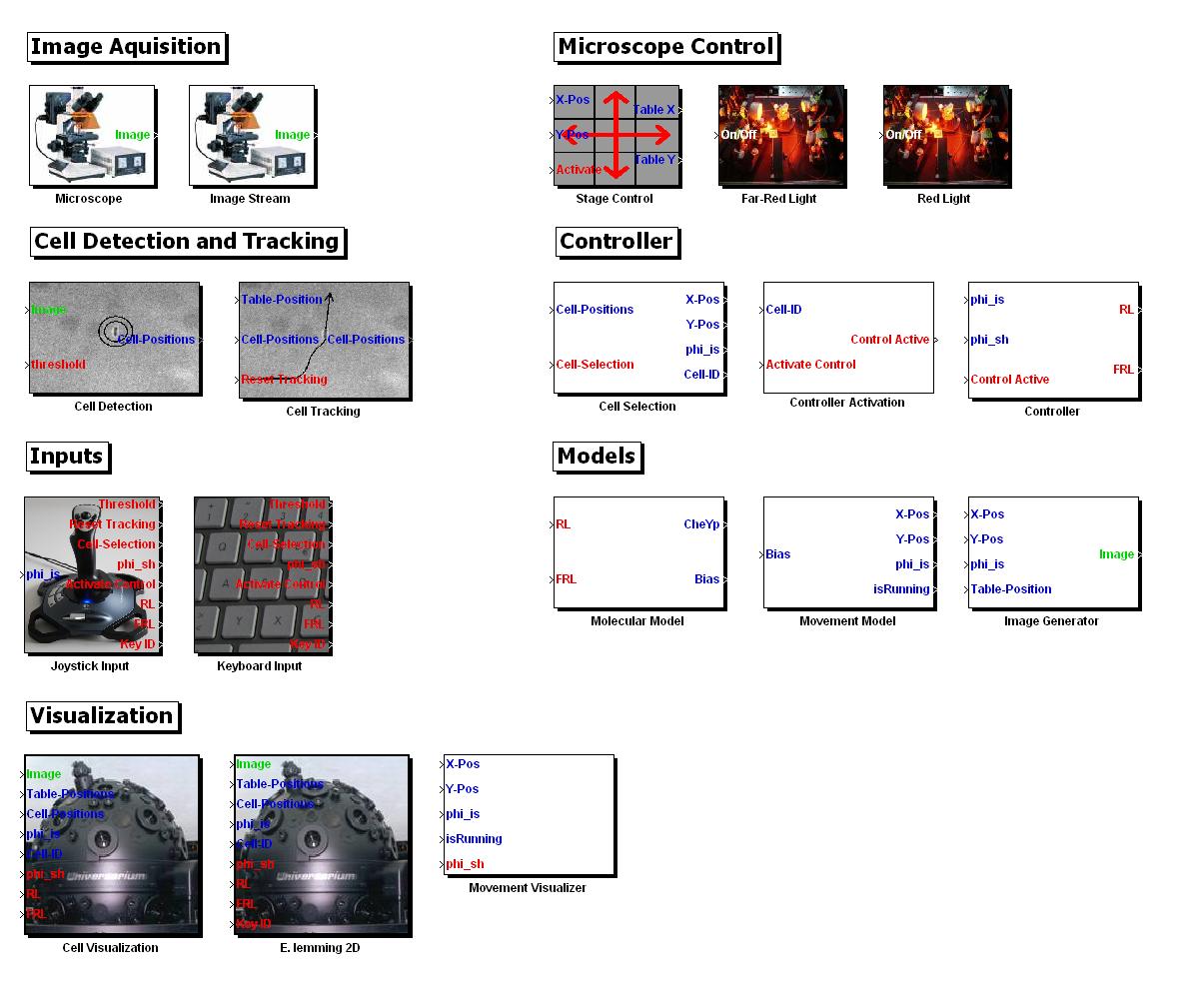Team:ETHZ Basel/Achievements
From 2010.igem.org
(→Model of light-inducible chemotaxis pathway) |
(→Model of light-inducible chemotaxis pathway) |
||
| Line 21: | Line 21: | ||
== Model of light-inducible chemotaxis pathway == | == Model of light-inducible chemotaxis pathway == | ||
| - | We made a [https://2010.igem.org/Team:ETHZ_Basel/Modeling/Combined '''model to control chemotaxis by light''']. The idea was to | + | We made a [https://2010.igem.org/Team:ETHZ_Basel/Modeling/Combined '''model to control chemotaxis by light''']. The idea was to instrumentalize light sensitive proteins (LSPs) in order to manipulate the concentrations of the chemotaxis proteins (eg CheY), through an intracellular anchoring reaction. As a consequence, we can take control on this pathway-and direct the E.lemming's movement! |
== Movement Model == | == Movement Model == | ||
Revision as of 14:06, 27 October 2010
Achievements Overview
The E. lemming
Watch the smallest remotely controlled robot in action at ETH Zurich! (Includes recorded video of live images of the light controlled E. coli - The E. lemming is alive!)
BioBrick Toolbox
Get a glimpse of our collection of BioBricks that showcases the proteins we made for E. lemming's chemotaxis, cellular anchoring, light sensing & fluorescence reporting including our favorites: the light sensing couple PhyB-Pif3 and the Archaeal light receptor. You find here also the characterization of our parts.
MATLAB Toolbox (Lemming Toolbox)

We managed to make all our computer based tools & algorithms modular and re-usable and we assembled the entire in silico setup of the E. Lemming into a MATLAB Toolbox! Our Toolbox includes 18 Simulink blocks encapsulating the algorithms we developed/implemented. We want to share our work with the iGEM community and interested persons and made it freely available for downloading.
New Technical Standard
After weeks of applying the cloning strategy BBF RFC28, we came up with our own strategy on how BFF RFC28 could be made compatible with Tom Knight`s original assembly standard.
Model of light-inducible chemotaxis pathway
We made a model to control chemotaxis by light. The idea was to instrumentalize light sensitive proteins (LSPs) in order to manipulate the concentrations of the chemotaxis proteins (eg CheY), through an intracellular anchoring reaction. As a consequence, we can take control on this pathway-and direct the E.lemming's movement!
Movement Model
We made a stochastic model to realistically simulate the chemotaxis motion of the cell in silico, which responds to the light input that is converted into changes in the chemotaxis pathway, that influence the motion of the E. lemming.
μPlateImager - software for the microscope
We developed μPlateImager, a platform independent software which enables the parallel acquisition of images and the remote control of light input signals to control our E. lemmings with light, while having them under the lens.
E. lemming 2D - The Game
We have made a synthetic biology shooting game featuring our very own E. lemming!
Controller
We developed five different controllers that can be used to guide the E. lemming to a desired target, using the light inputs that influence the motion of E. lemming
Systems Design
See how we managed to use modeling to support the wetlab and vice versa when we designed the system.
Systems Implementation
Have a look at how we simulated the whole setup in silico.
 "
"


